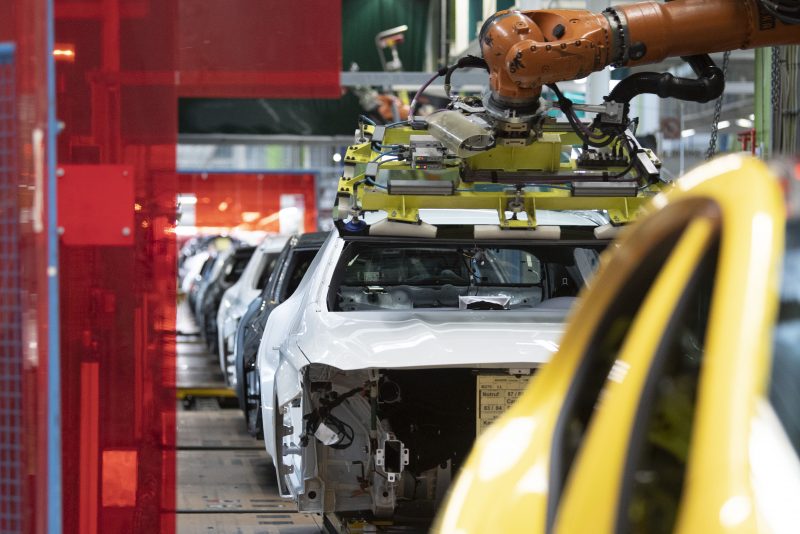German manufacturing woes drag down eurozone
Germany’s auto industry has been hit particularly hard recently thanks to new pollution regulations and trade war worries (THOMAS KIENZLE)
Frankfurt am Main (AFP) – Signs of a weak first quarter for the eurozone mounted on Friday as a closely-watched survey pointed to March output being dragged further down by manufacturing weakness, especially in Germany, Europe’s largest economy.
Data company IHS Markit said in a first estimate for the month that while services firms proved “resilient”, manufacturers in the 19-nation single currency bloc “reported their steepest downturn for six years” as pressure mounted from trade wars and Brexit fears.
At 47.6 points — down from 49.3 last month — the manufacturing purchasing managers’ index (PMI) sank further below the crucial 50-point threshold between expansion and contraction.
A headline “composite” figure that also includes services remained in positive territory, although it shed 0.6 points compared with February to land at 51.3.
In Europe’s largest economy Germany, “factory orders deteriorated to the greatest extent since the height of the global financial crisis in April 2009,” IHS Markit said.
The industrial powerhouse barely avoided falling into recession at the end of last year as it suffered knock-on effects from America’s trade war with China and new emissions tests hit the vital auto sector.
Uncertainty over the threat of US tariffs on European cars and a possible no-deal departure for Britain from the EU have added to the gloom.
“While recovery from one-offs is still expected in German manufacturing output, uncertainty about global economic factors is weighing heavily,” ING economist Bert Colijn commented.
France, the eurozone’s second largest economy, has also suffered in recent months as “yellow vest” protesters have disrupted economic activity.
Orders fell again in March, dashing hopes that a rise in February marked the start of a rebound.
But the picture was brighter elsewhere in the eurozone.
Outside Germany and France, “the rate of output growth accelerated to its highest since last September,” IHS Markit found, although all of the boost came from services firms while manufacturers “stagnated”.
“Today’s PMI indicates that GDP growth is unlikely to have bounced back” in the first quarter, said analyst Colijn.
“To fire on both cylinders again, the eurozone seems to require the global growth outlook to improve. Unfortunately, uncertainty is continuing into April.”
Hopes of a quick deal between Washington and Beijing that could help dispel weakness in global trade have so far been disappointed, with a new round of talks slated for next week in the Chinese capital.
Meanwhile the EU agreed a short Brexit delay to April 12 with British Prime Minister Theresa May late Thursday, leaving uncertainty dangling over future relations with one of the eurozone’s biggest trading partners.
Disclaimer: This story is published from a syndicated feed. Siliconeer does not assume any liability for the above story. Validity of the above story is for 7 Days from original date of publishing. Content copyright AFP.


